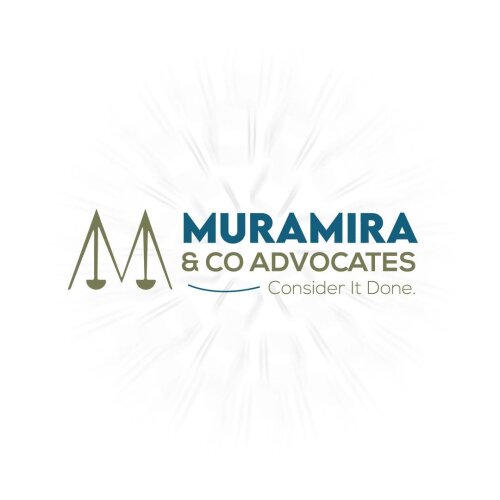Best Citizenship Lawyers in Kigali
Share your needs with us, get contacted by law firms.
Free. Takes 2 min.
List of the best lawyers in Kigali, Rwanda
About Citizenship Law in Kigali, Rwanda
Citizenship in Kigali, Rwanda, is governed by the Rwandan nationality law, which outlines the requirements and procedures for acquiring, renouncing, and losing Rwandan nationality. Rwandan citizenship can be acquired through birth, descent, marriage, or naturalization. The Government of Rwanda promotes national unity and seeks to facilitate the legal integration of citizens, respecting both the rights of individuals to belong to a nation and the responsibilities that accompany such membership.
Why You May Need a Lawyer
There are several situations where you might need legal assistance concerning citizenship in Kigali, Rwanda. These include navigating the complex process of naturalization, dealing with issues related to dual citizenship, or challenging a decision on citizenship status. Furthermore, individuals seeking to understand their rights and obligations, or those facing potential revocation of their citizenship, can benefit significantly from professional legal advice.
Local Laws Overview
Key aspects of Rwandan citizenship laws that individuals need to be aware of include:
- Rwandan nationality by birth is acquired if one parent is a Rwandan citizen.
- Naturalization requires continuous residence in Rwanda for a prescribed period, good character, and knowledge of the Kinyarwanda language.
- Dual citizenship is permitted under certain conditions, though specific declarations may be necessary.
- The revocation of citizenship can occur if a person fraudulently acquires it or engages in specific acts deemed unlawful by the government.
- Procedures for renunciation of Rwandan citizenship exist for those seeking to relinquish their nationality formally.
Frequently Asked Questions
What are the main ways to acquire Rwandan citizenship?
Rwandan citizenship can be acquired through birth, descent from a Rwandan parent, marriage to a Rwandan citizen, or through the process of naturalization.
Is dual citizenship allowed in Rwanda?
Yes, dual citizenship is permitted in Rwanda, but individuals with dual nationality must declare both nationalities as per the legal requirements.
How long do I need to reside in Rwanda to apply for naturalization?
To be eligible for naturalization, an individual must typically have resided in Rwanda continuously for at least five years, though this may vary depending on specific circumstances.
Can citizenship be revoked once it has been granted?
Yes, citizenship can be revoked if it was obtained fraudulently or if the individual engages in actions contrary to Rwandan interests or security.
Does marriage to a Rwandan citizen automatically confer citizenship?
No, marriage to a Rwandan citizen does not automatically confer citizenship, but it can be a basis for applying for naturalization, subject to certain conditions.
What documents are required for naturalization?
Typical documents include proof of residence, identity documents, a criminal record check, and evidence of knowledge of Kinyarwanda, among others; specific requirements can vary.
Are children of foreign residents eligible for Rwandan citizenship?
Children of foreign residents may acquire Rwandan citizenship if certain legal criteria are met, especially if they are born in Rwanda to foreign parents legally residing in the country.
What happens if a foreign national commits a crime in Rwanda?
Foreign nationals are subject to Rwandan laws and can face legal consequences, including potential impacts on their residence or citizenship applications.
Can Rwandan citizens lose their citizenship if they become naturalized in another country?
While Rwanda permits dual citizenship, any Rwandan acquiring another citizenship must comply with relevant legal requirements to maintain their Rwandan nationality.
How can someone prove their Rwandan citizenship?
Proof of Rwandan citizenship can include a national ID card, passport, or a citizenship certificate issued by competent Rwandan authorities.
Additional Resources
For further assistance, consider reaching out to the Directorate General of Immigration and Emigration in Rwanda, Legal Aid Forum Rwanda, or consulting the official government portals for information on nationality laws and related matters.
Next Steps
If you need legal assistance with citizenship issues in Rwanda, start by consulting a qualified lawyer specializing in immigration and citizenship law. Preparing all necessary documents and understanding your legal status can facilitate the process. Engage with legal forums or community groups for additional support and resources.
Lawzana helps you find the best lawyers and law firms in Kigali through a curated and pre-screened list of qualified legal professionals. Our platform offers rankings and detailed profiles of attorneys and law firms, allowing you to compare based on practice areas, including Citizenship, experience, and client feedback.
Each profile includes a description of the firm's areas of practice, client reviews, team members and partners, year of establishment, spoken languages, office locations, contact information, social media presence, and any published articles or resources. Most firms on our platform speak English and are experienced in both local and international legal matters.
Get a quote from top-rated law firms in Kigali, Rwanda — quickly, securely, and without unnecessary hassle.
Disclaimer:
The information provided on this page is for general informational purposes only and does not constitute legal advice. While we strive to ensure the accuracy and relevance of the content, legal information may change over time, and interpretations of the law can vary. You should always consult with a qualified legal professional for advice specific to your situation.
We disclaim all liability for actions taken or not taken based on the content of this page. If you believe any information is incorrect or outdated, please contact us, and we will review and update it where appropriate.











